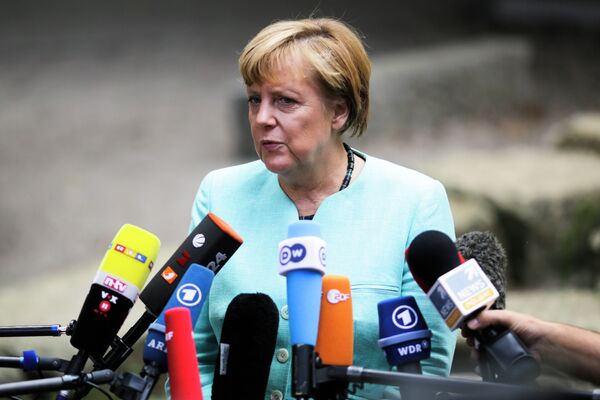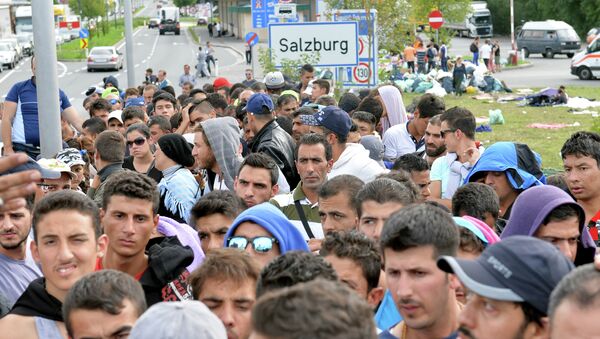As thousands more migrants flood into Europe, there are deepening divisions between the nations. Germany and Austria have introduced border controls, against the spirit of the Schengen Agreement for a borderless Europe.
Hungary has built a razor wire fence and Poland, Hungary, Slovakia and the Czech Republic have all rejected plans to redistribute asylum-seekers under a quota system proposed by the European Commission.

However, many believe that it was German Chancellor Angela Merkel's offer to take in refugees and that Germany's doors were open, that caused tens of thousands to flee from Syria and Afghanistan, making the often dangerous journey across Europe.
Steven Woolfe, British anti-Europe party UKIP's Migration Spokesman said:
"Germany's Chancellor Angela Merkel's perceived opened-ended welcome to all migrants is a colossal, historic mistake for the European Union."
"It's political folly on a grand scale. Her decision sent a powerful message to migrants, whether refugee or economic, that irrespective of international law, Germany was now a viable destination to go," he said.
"Any basic research on what tools migrants use to navigate their way from safe havens in Turkey and Jordan shows that social media, amplified by word of mouth communication, plays a huge part in both the decision whether to migrate and a migrant's destination of choice."
#refugeecrisis — a pic with so many stories pic.twitter.com/EFKozc8nQd v @Free_Media_Hub #Syria #Germany #SyrianRefugees #refugeeswelcome
— Raza Rumi (@Razarumi) September 20, 2015
"This increases the speed and numbers of those wishing to leave the safe havens where many currently reside," he told UKIP members in the north of England.
"Inconsistent Policy of Germany"
Even the well-regarded magazine Der Spiegel questioned Merkel's judgement, saying:
"Her words traveled at lightning speed. They were shared over Facebook and Twitter, via email and SMS, prompting tens of thousands of people — maybe hundreds of thousands — to make their way to Europe. In Hungary, refugees are being fought off with water cannons and tear gas. Police officers are back at the German border with Austria to at least try and channel the flow of desperate people pouring in."
Hungary's parliament passed a law Monday, allowing the army to patrol its borders and use non-lethal weapons such as rubber bullets and tear gas grenades, against refugees.
Abdullah from Syria told us "We came here for the human rights. Where are the human rights?" Watch: http://t.co/uITs9BIE3q #RefugeesWelcome
— AmnestyInternational (@AmnestyOnline) September 22, 2015
Germany's offer to take in over 800,000 refugees and to breach the Schengen and Dublin Agreements on a borderless Europe and asylum policy has thrown it onto a collision path with its fellow European countries. Schengen calls for a borderless Europe, while the Dublin rules say asylum seekers must be processed in the country of landing.
In breaching the principles of Schengen and Dublin, while at the same time demanding all other countries take in their share of refugees and migrants, Berlin is accused of hypocrisy. Merkel said Monday:
"Germany is willing to help. But it is not just a German challenge, but one for all of Europe. Europe must act together and take on responsibility. Germany can't shoulder this task alone."
However, the Czech republic's interior minister, Milan Chovanec, tweeted: "The current biggest problem of solving migration is an inconsistent policy of Germany."


